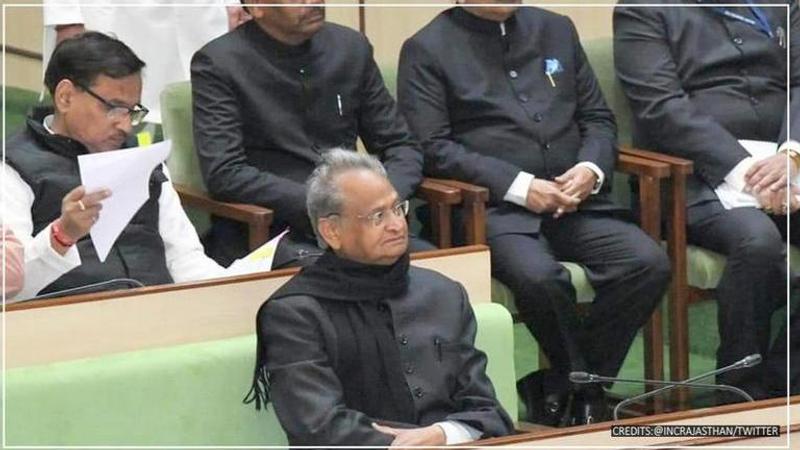Published 13:58 IST, January 25th 2020
Rajasthan Assembly passes anti-CAA resolution, third after Kerala and Punjab
Congress-ruled Rajasthan on Saturday passed a resolution against the contentious CAA in the Assembly, becoming the third state to do so after Kerala and Punjab

Congress-ruled Rajasthan on Saturday passed a resolution against the contentious Citizenship (Amendment) Act (CAA) in the Legislative Assembly, becoming the third state to do so after Left-ruled Kerala and Congress-ruled Punjab. Chief Minister Ashok Gehlot and deputy CM Sachin Pilot had repeatedly vowed to oppose the CAA and the proposed National Register of Citizens (NRC). Opposing the government's move, several BJP MLAs rushed to the well of the House and chanted slogans in favour of CAA. The resolution was passed on the second day of its Budget session.
On Thursday, Pilot said the Centre should listen to people protesting against the Act across the country and asserted that democracy weakens if there is no dialogue. "We are requesting the central government to reconsider the Act. The Constitution has given the right to protest but if someone does it, they are attacked and called anti-nationals," the deputy CM said.
Punjab, Kerala pass anti-CAA resolutions
The Pinarayi Vijayan government in Kerala had in December last year passed an anti-CAA resolution in its Assembly after which it moved the Supreme Court against the CAA, seeking to declare it “violative of the principles of equality, freedom, and secularism enshrined in the Constitution”. Following Kerala, the Punjab government too passed a resolution demanding to scrap the contentious law in early January. West Bengal Chief Minister Mamata Banerjee on Tuesday had announced that the state will also pass an anti-CAA resolution. Several states like Maharashtra, Madhya Pradesh, Telangana, and other non-BJP states are mulling the same, while openly opposing CAA-NRC-NPR.
About the new citizenship law
The BJP government has drawn huge flak from citizens across India over the CAA that fast-tracks citizenship for non-Muslim immigrants from neighbouring Pakistan, Afghanistan and Bangladesh. The government says the law is necessary to provide relief to thousands of people fleeing persecution in those countries because of their faith. Opponents of the law contend that the bill purposely leaves out Muslim immigrants and does not provide relief to those fleeing similar persecution in neighbouring Sri Lanka and Myanmar.
Updated 13:58 IST, January 25th 2020




